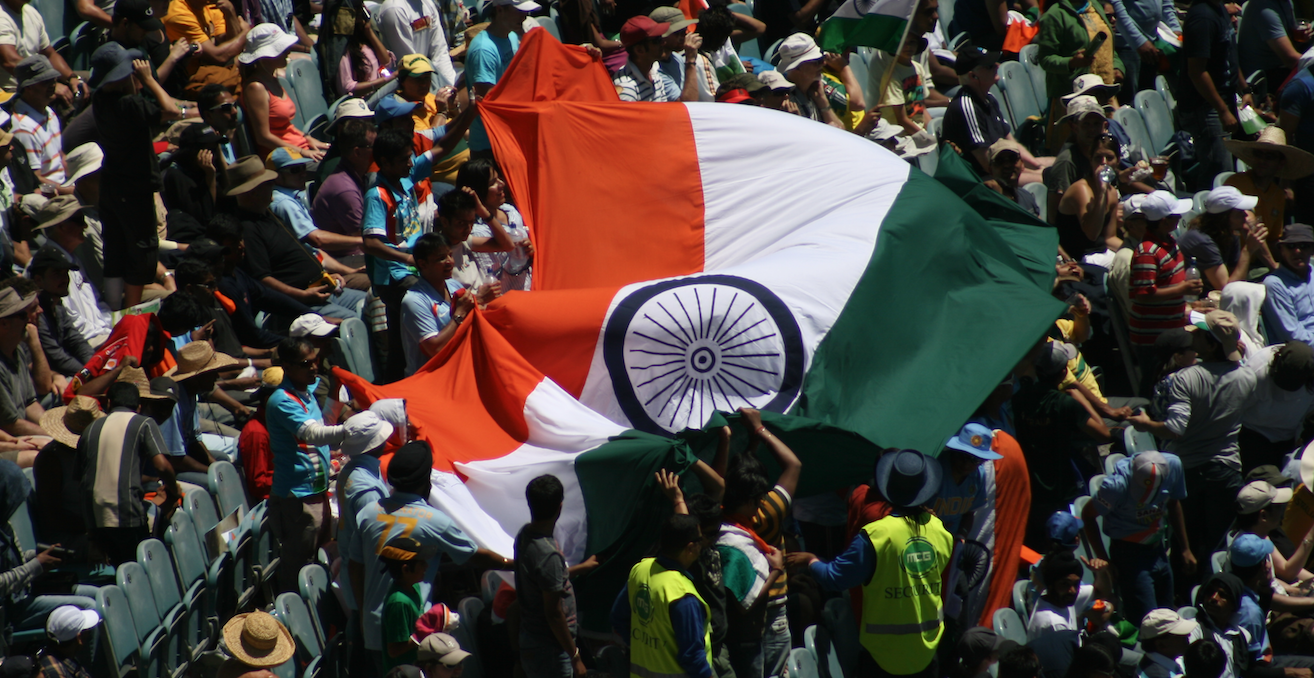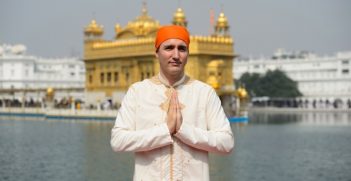Gentlemen’s Game or Politicians' Propaganda? Cricket and India-Pakistan Voices

The India-Pakistan cricket clash on 16 June was caught up in the geopolitical tensions between the two nations.
Although recognized as a gentlemen’s game, cricket has become a “weapon” in the ever-growing “war” between India and Pakistan. Cricket matches are seen as a great opportunity to reflect these political tensions over the past decade between the two countries. Yet can a sport be utilized as an effective diplomatic tool? And if it can, is government involvement necessary or even helpful?
Recently, tension between the two countries escalated with a suicide bombing attack sponsored by the terror group, Jaish-e-Mohammed in the Pulwama district of Jammu and Kashmir. This grave attack resulted in the death of 40 Central Reserve Police Force personnel, which the Indian government claimed was an act of war: leading them to raise the issue on the global platform.
Surprisingly, one of most salient responses by the Indian government was its call to abandon the upcoming match between the two countries following the start of the International Cricket Council (ICC) Cricket World Cup, in addition to the usual assertion of the country’s rights over the Kashmir valley. Alongside the Modi government’s airstrikes against Pakistan, leading to a major confrontation between the two countries along the “line of control” — the de facto border between the two countries — a large-scale debate about whether India should abandon the game was also a hotly debated topic in the country.
Later, the Board of Control for Cricket in India (BCCI) did hand over the matter to the Modi government, which was subsequently inclined towards the allowing the sporting match to go ahead.
However, both the Indian cricket team and the BCCI were not ready to desert the will of the public that easily. Star player Harbhajan Singh said “There is no need for any relations with Pakistan, let alone cricket. […] I don’t care about losing points as the Indian team is powerful enough to win the World Cup without playing Pakistan.”
Involved in a One Day International (ODI) series with Australia, the Indian team walked out wearing military caps as a sign of apparent solidarity with the troopers killed in the terrorist attack. Never before had Team India taken it upon themselves to spread such jingoistic propaganda on the global stage and make such an overt statement. The rise of the protestors in Pakistan was met with official statements from the ICC, stating their approval as a means of “support” to the Indian team for a fund-raising effort for their fallen soldiers.
Similarly, in an act of nationalistic fervour, the BCCI decided to ban Pakistan from the upcoming World Cup prior to its commencement. This received severe backlash from the ICC, in efforts to keep politics from the sanctity of the game. However, BCCI was unsuccessful in passing this unrealistic decree. Given their large scale influence on the international body, it was clear that cricket had become a weapon and means of propaganda between the two countries.
So has the situation really improved? Recently, an ad war following the start of the world cup has emerged between the two countries, given their highly anticipated clash on 16 June. Ahead of the Sunday clash, guaranteed to put both the nations at a standstill, Star Sport’s Mauka ad — loosely translated to chance of winning — has captured the attention of the Indian fans, as the video has garnered over two and a half million views after it was published on 10th June 2019. This video currently stands as a reprise and extension of the “Patakhe kab podhenge” campaign — clumsily translated to “when will be get to light firecrackers” — wherein a Pakistani fan never gets a chance to burn his crackers as Pakistan is always defeated by India on a world cup stage, as indicated by the records as well. However, the new Mauka ad, recognising 16 June as Father’s day and does not fail to interject the role of India as a father in comparison Pakistan, as a means of cheeky humour which received large scale reaction from the Pakistani fans.
As a means of response, a Pakistani news channel Jazz TV, published a video with a character impersonating Wing Commander Varthaman, the Indian air force pilot who was captured, briefly held and then released under the pretence of the Geneva Convention. The character is seen sporting the pilot’s handlebar moustache, speaks with a fake South Indian accent and is dressed in the Indian team jersey: clearly imitating a video of Abhinandan Varthaman released by the Pakistani military. At the of end of the video, the interrogator asks him to give back the tea cup he has been holding, clearing denoting how the cup belongs to Pakistan. This video was met with the usual support from the Pakistani fans and deemed “racist” by the Indian fans, due to the portrayal of the esteemed pilot with a fake southern accent.
Although tension has been running high between the countries for some time now, both nations have resorted to extending tensions to the cricket pitch, ensuring large scale traction for their upcoming matches.
Kashish Kumar is studying a Masters of Social Work at the Australian National University.
This article is published under a Creative Commons Licence and may be republished with attribution.




